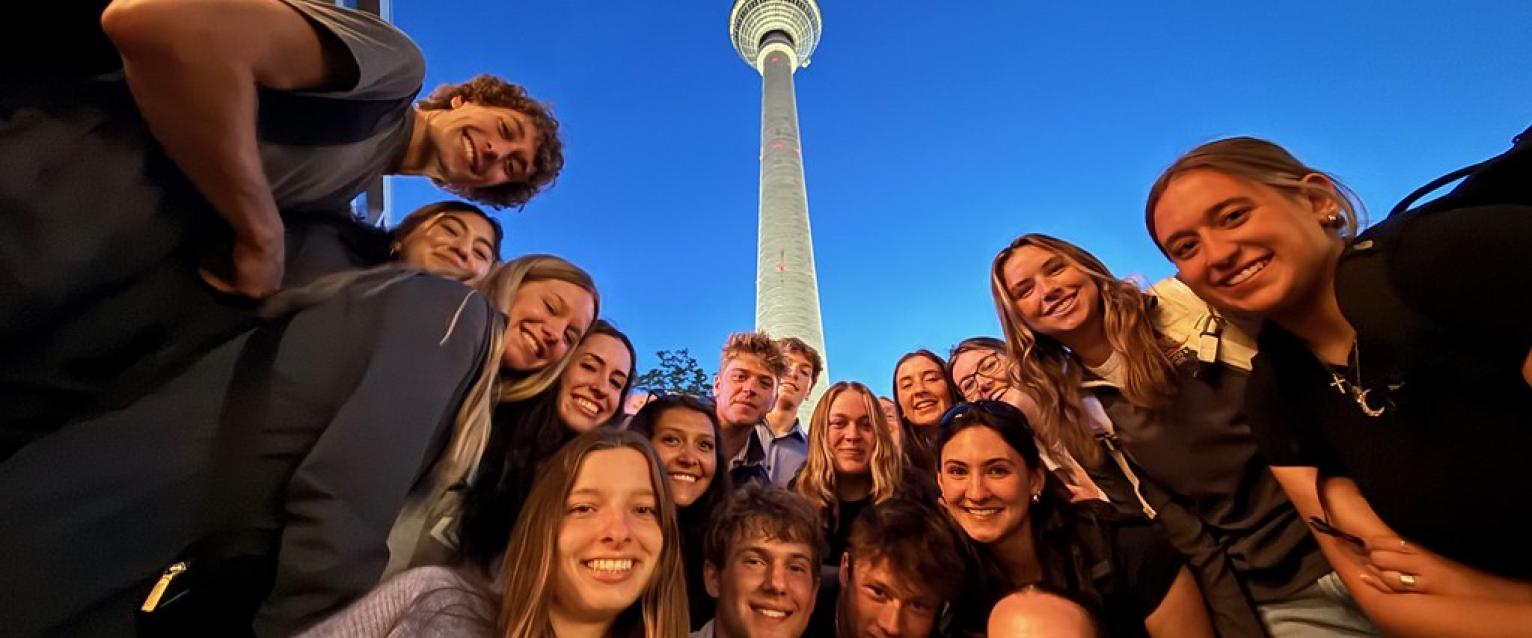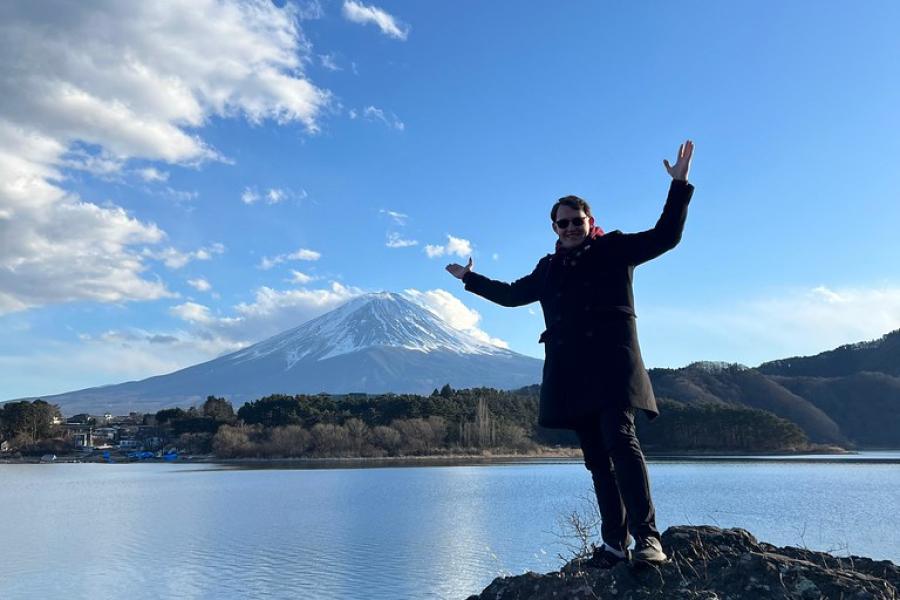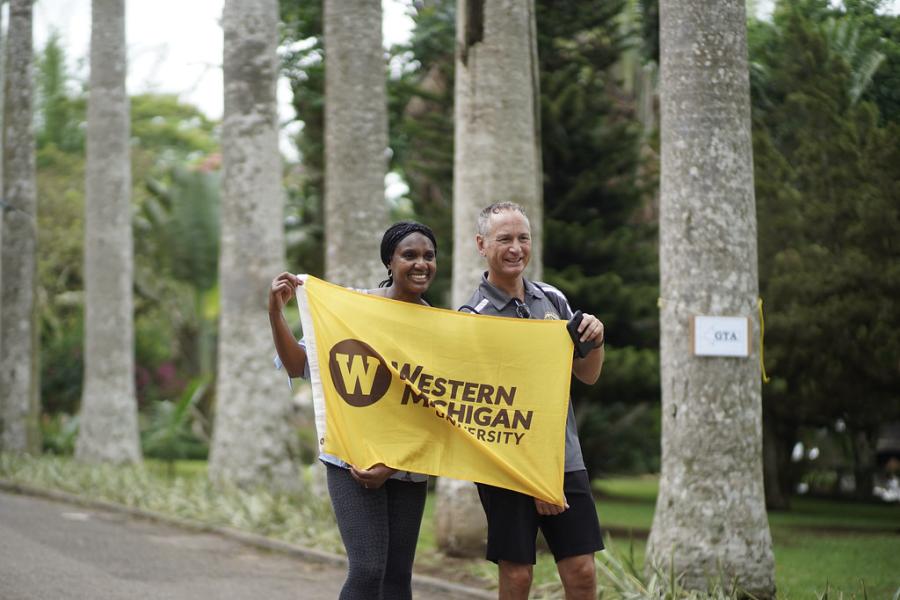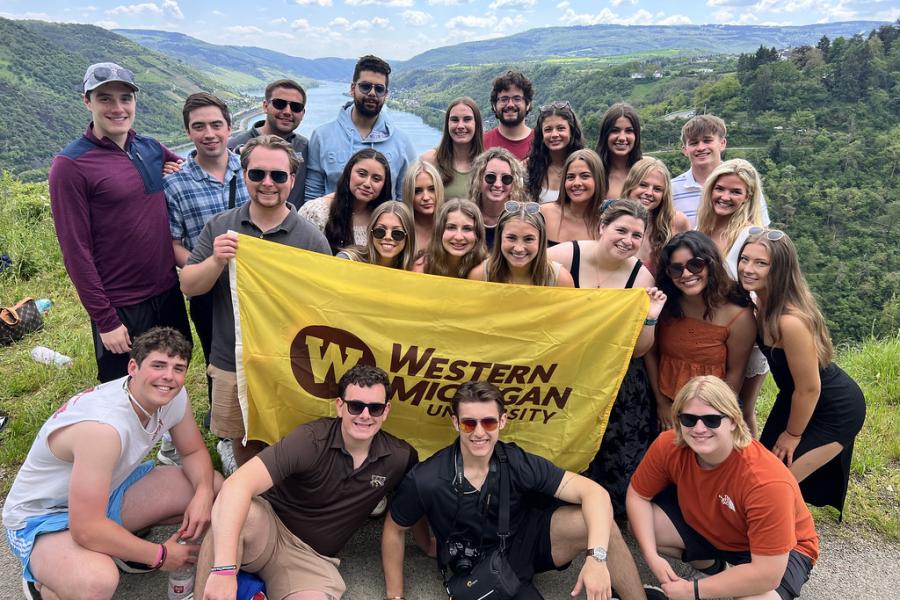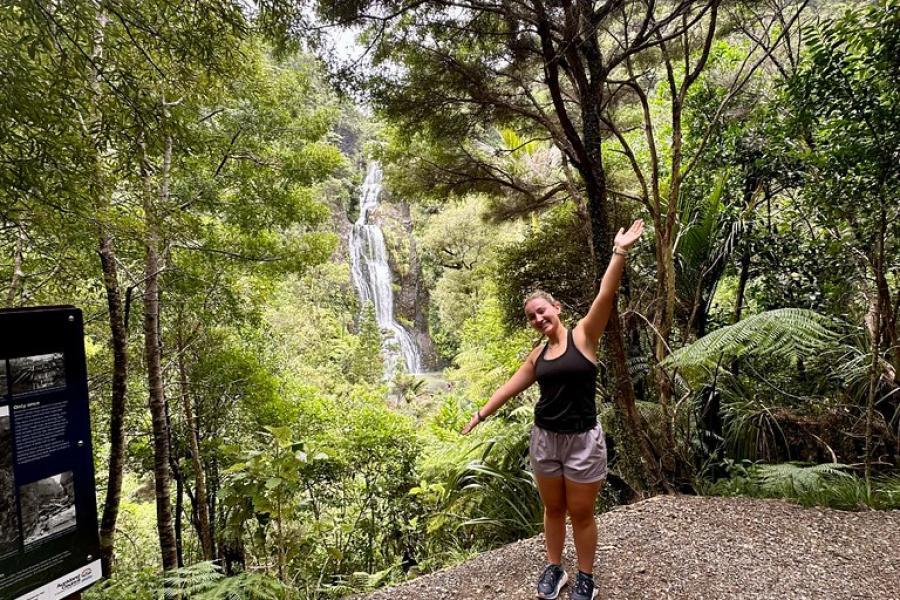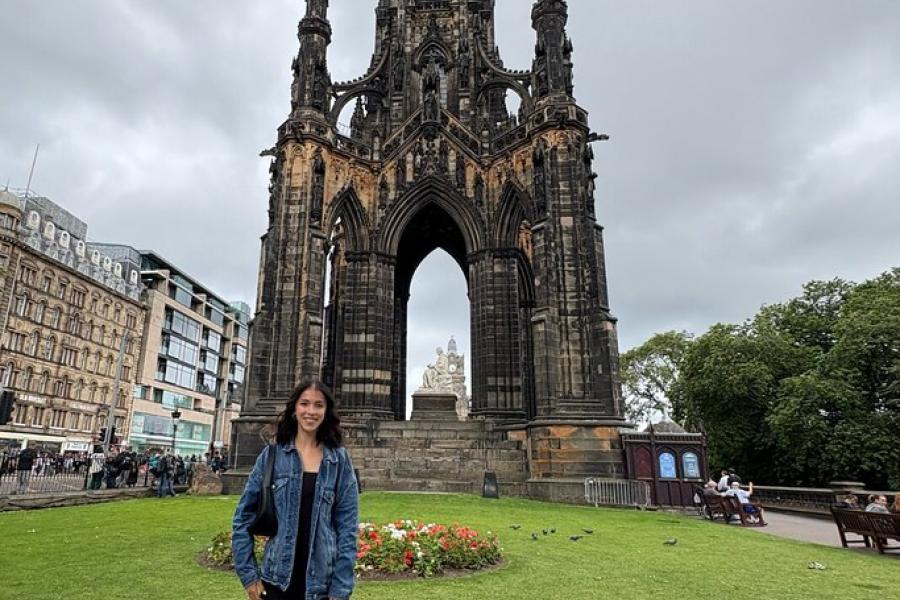Explore

Explore
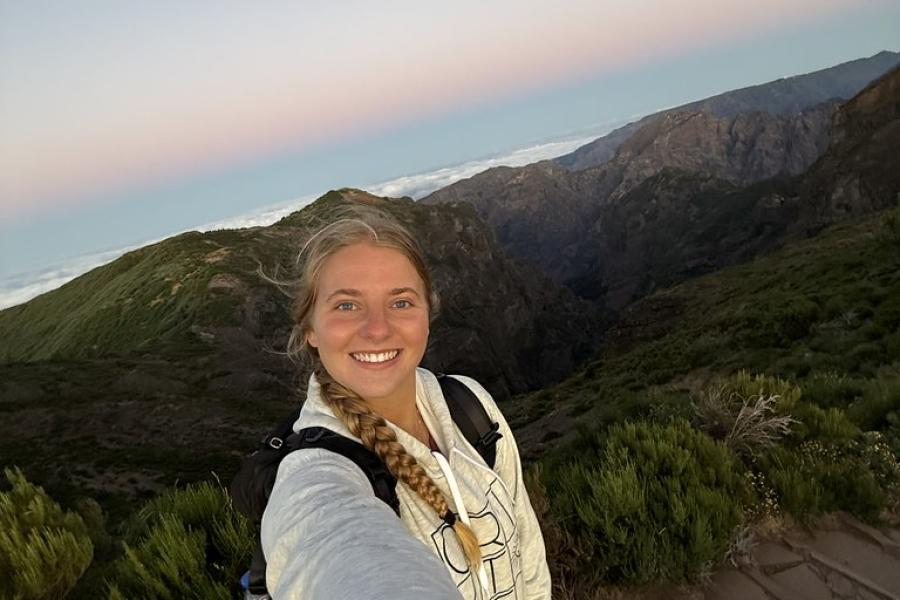
Attend a Study Abroad Information Session
We consider attending an Information Session to be one of the first steps in the study abroad process! Info sessions are 30-minute virtual sessions (via Teams) that discuss frequently asked questions and guide students on how to find study abroad programs that meet their needs.
Types of Study Abroad Programs
Study abroad programs vary in length, location, cost, number of travelers, academic focus and more. The following are general categories of study abroad programs:
WMU Study Abroad Application Deadlines
Study Abroad application deadlines for most* programs are as follows:
Fall/Academic Year:
February 15
Spring:
September 15 or October 15
Summer I:
January 31
Summer II:
February 15
Financial Planning for Study Abroad
When choosing a study abroad program, it is important to understand the financial costs associated with your study abroad, as well as your resources for funding (such as financial aid and scholarships).

Scholarships
The WMU Study Abroad Office recommends that students conduct extensive scholarship research to identify awards that are applicable to their study abroad plans.
Travel Documents
Consider Your Goals and Plans for Studying Abroad
When determining which study abroad program might be right for you, it is helpful to consider your goals for study abroad and any additional factors that may impact your study abroad plans.
Some things to consider:
Academic goals
Personal and professional goals
Duration and timing
Cost and resources
Other priorities
The "Considering Your Study Abroad Priorities Guide" linked below lists guiding questions that may be helpful to consider as a part of planning your study abroad experience. Sharing these thoughts with your Study Abroad Specialist (during or prior to meeting with them) will help them to guide you to the study abroad program that best fits your needs.
Explore and Identify Program Options Within the WMU Study Abroad Application Portal
After considering your goals and any factors that may affect your plans to study abroad, your next step is to explore program options through the WMU Study Abroad Application Portal. You should aim to identify 2-3 programs that most interest you.
1.
Navigate to the WMU Study Abroad Application Portal "Program Discovery".
2.
Use one of the following methods to search for programs:
Filters: Click the "Filters" button at the top of the page and select criteria that match your interests (e.g., term, countries, program type).
Keyword Search: Enter keywords in the "Search" field at the top of the page (e.g., "Italy", "faculty-led", "summer").
3.
If your search results include programs you'd like to learn more about, click on the program name to view its Program Brochure.
4.
Within each Program Brochure, use the tabs at the top to navigate through different sections.
Brochures contain a wide variety of information about the program, often including an overview of the program and information on the academic calendar, eligibility, location, academics abroad, cost, passports, visas, housing, services abroad, health and safety, dates and deadlines, the path to study abroad, and helpful contacts.
Please note that information shared on the brochure will vary by program and program type.
Meet with experts in WMU Study Abroad, Academic Advising, and Financial Aid
As a part of exploring and identifying study abroad program options that may be a good fit, students are encouraged to meet with experts in the following areas:

WMU Study Abroad
Students should meet with their WMU Study Abroad Specialist to discuss their goals and plans for studying abroad. Specialists can help guide students to programs that may best fit their needs and can assist in answering questions about the study abroad process.
Note: student's applying for a Partner or Exchange program are required to meet with their Study Abroad Specialist for one-on-one advising as a part of their application process. Students should contact their specialist as soon as possible to schedule this appointment.

WMU Academic Advising
Students should meet with their WMU Academic Advisor to discuss their plans for studying abroad and how it might fit best into their academic plans.
Note: student's applying for a Partner or Exchange program will be required to work closely with their WMU Academic Advisor as a part of their application process. Students on these programs will need to obtain official approval from their advisor (via the "WMU Study Abroad Course Pre-Approval Form") confirming how the courses they will take abroad will be counted towards their academic requirements at WMU.

WMU Financial Aid
Students are encouraged to meet with an advisor in the WMU Financial Aid Office/Bronco express to discuss how studying abroad may impact their financial aid package.
After completing the steps outlined on this page and determining your top program of interest, your next step will be to start your program application within the WMU Study Abroad Application Portal. For more information on the study abroad application process, please click here.
Apply

Apply
Start your Program Application
Instructions for starting your program application via the WMU Study Abroad Application Portal
Access to the WMU Study Abroad Application Portal "Program Discovery" and navigate to the Program Brochure for your program of choice.
Click the "Apply Now" button located on the brochure.
For programs with an open application cycle, you will see an "Apply Now" button located on both the "Overview" and "Apply & Questions" tabs.
If the "Apply Now" button is not visible, this means that the application is not yet open for that program. Please check back later and/or reach out to the Study Abroad Staff indicated on the "Apply and Questions" tab to express your interest.
Log in via the "User Login" screen that appears.
WMU students should click "Log in with Campus ID", and log in using their Bronco NetID and Password.
Once logged in, select the term for which you are applying to study abroad. Then click "Continue" to keep working on your application.
Note: student's applying for a Partner or Exchange program are required to meet with their Study Abroad Specialist for one-on-one advising as a part of their application process. Students should contact the WMU Study Abroad Office via email at study-abroad@wmich.edu as soon as possible to schedule this appointment.
Study Abroad Policies & Procedures
The WMU Study Abroad Office has several policies and procedures which cover program eligibility, academic requirements, program requirements, participation expectations, financial information and health & safety protocols.
Study Abroad Academic Policies and Procedures (links to "Campus Partners/Study Abroad Course Policies & Procedures"
Prepare to Travel

Prepare to Travel
Pre-Departure Orientation
All students participating in a study abroad program are required to participate in pre-departure orientation. The type of orientation varies, based on study abroad program details, but all students are required to complete a study abroad pre-departure course in WMU E-Learning. Then, an in person meeting or event will be scheduled to cover information in more detail.
Identity Abroad
WMU Study Abroad is dedicated to creating a safe and inclusive environment for all students while promoting study abroad opportunities for a diverse student body. Studying abroad may often place students in unfamiliar and sometimes challenging situations, with varying attitudes and perceptions of diversity issues across different countries. Researching the host culture is essential to understand common perceptions, social and historical viewpoints, and available support systems. Below are some resources to assist you in planning and preparing for your study abroad experience.
Health & Safety
Return

Return
Prepare for Reverse Culture Shock
Attend WMU Study Abroad Re-entry Events
Credit Transfer Information
Be sure you have requested your study abroad transcript is sent to WMU
Study Abroad Again
Other International Opportunities
Fulbright
Teach English as a Second Language
Peace Corps
Get Involved in Global Education at WMU
International RSO
CELCIS Conversation Circles
Connect with International Students


